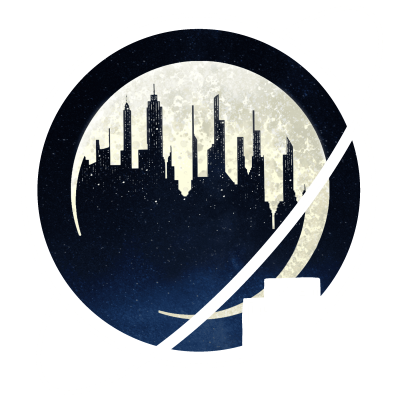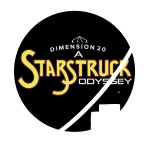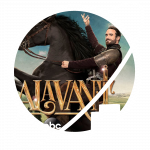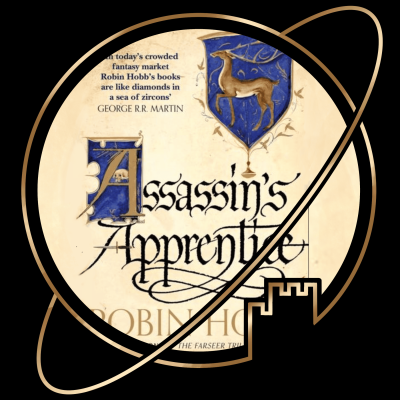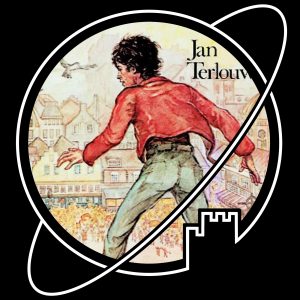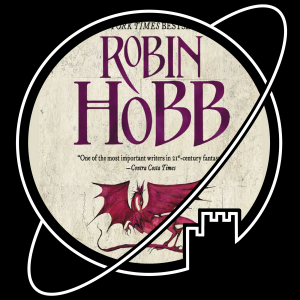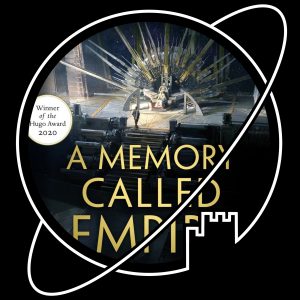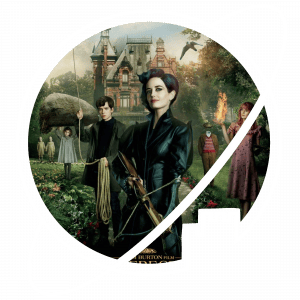Welcome to the Escape Velocity Collection!
We are an opinionated group of friends reviewing all sorts of fantasy and science fiction media. Don’t forget to get to know the curators and visit our curated Collection, where we discuss the stories that never cease to transport us to another world.
Will you escape with us?
LATEST POSTS:
- Dungeons and Dragons actual play webseries
- Produced by Dimension 20 for Dropout.tv
- Released in 2019
- DM'd by Brennan Lee Mulligan
- Starring Ally Beardsley, Emily Axford, Zac Oyama, Lou Wilson, Brian Murphy and Siobhan Thompson
New York, New York! In this Dungeons and Dragons webseries by Dimension 20, the city that never sleeps is home to more than just cockroaches and rats. In the Unsleeping City, magical creatures abound, hidden from view of average New Yorkers. The story follows a small group, some of them new to the magic of the city, and others long familiar with it. Watch as they navigate the usual troubles found in New York, as well as some… less average troubles.

(This review relates only to the first season)
The Unsleeping City is the third Dimension 20 D&D show I watched, so I knew pretty much what to expect. Still, while the comradery at the table is the same as it was in Fantasy High, The Unsleeping City offers a vastly different experience. This show is urban fantasy at its finest.
The Unsleeping City is very much a love letter to New York. Now I’ve never been to New York, and I’m not hugely impressed by what I’ve heard about it so far. Still, it’s clear that the cast is very familiar with the city, and they love it. There’s definitely things that went over my head (like why no one ever wanted to go to Sofia’s home in Staten Island – because you have to take the ferry to get there), but they don’t detract from the experience, because there’s so much else going on. The Unsleeping City shows us many sides of New York, and Dungeon Master Brennan Lee Mulligan sprinkles some magic into each location in a way that’s almost like magic in itself.
Every time when I review something from Dimension 20, I want to highlight players who’ve really made me laugh (or cry). The problem with this is that it’s basically impossible to pick individual people, as the entire cast really is phenomenal.
Now I wasn’t joking before, The Unsleeping City has made me cry multiple times. Sure, the show is largely comedy, but boy do these people know how to tell a story.

If you’ve read my review of Fantasy High, you will know that I am not generally a huge fan of the “Let’s play D&D and upload our session to the internet”-type content. Even so, Fantasy High was surprisingly watchable, so I gave Dimension 20 another shot with The Unsleeping City.
Like Fantasy High, The Unsleeping City offers a more condensed experience than most similar content. Brennan Lee Mulligan is an excellent DM and he has designed the campaign to have as little dead time as possible. In effect, it feels like all we’re watching is a highlight reel – which in and of itself is an inspirational way to go about a TTRPG campaign. It also a huge improvement on the genre’s usual flaws.
The Unsleeping City is unfortunately still not a particularly dense format. Especially combat sequences – even if every battle is an awesome set piece – still drag. They just drag a lot less than usual.
All the above is really commentary on the nature of the D&D-playing-show-genre, which perhaps goes to show that The Unsleeping City’s format, more than anything else, is a determining factor for (and… an impediment to?) my enjoyment.
The world of The Unsleeping City is really cool, reminding me more than anything of Neil Gaiman’s Neverwhere: both set up a fairy tale mythology of a modern metropolis (for New York and London respectively), based on history, geography, puns, and urban legend. The players have come up with an original, often hilarious, and occasionally heart breaking cast of characters. The twisting main plot is a bit tough to follow at times, but it doesn’t really matter, because the personal stories of the player characters are the emotional core of the show – and they are really well done and satisfying.
As before, I would probably have loved The Unsleeping City more as something like an improv audio drama with all the unnecessary dice rolling and rules babbling taken out. As fun as a high or low roll at a crucial juncture can be, there are few things as immersion-breaking as stopping to roll midway through an emotional sequence.
In short: these people tell a great story, but perhaps they shouldn’t lean on the crutch of D&D to make it work.
Tagged:
Lotte
Check out our reviews of the media recommended in this post here:
Unless you’ve been living under a rock, you’ll know that Fantasy is highly in demand right now. No doubt influenced by the success of Game of Thrones, there’s a lot of grimdark fantasy out there these days. If, like Peter, that’s your cup of tea, you may want to take a look at our grimdark tag to see what we’ve reviewed. However, in today’s recommendation, we wanted to highlight some of the more light-hearted fantasy content we’ve come across. If you’re the kind of fantasy lover who’s more into the works of Terry Pratchett than George R. R. Martin, we reckon you’ll love the following suggestions!
Fantasy High
First on my list, there’s Fantasy High. Led by Brennan Lee Mulligan, this Dungeons and Dragons live stream is a delightful blend of classic fantasy tropes, and an all-American high school setting. One moment they’re fighting monsters, the next they’re helping a Werewolf drug dealer find a job as a guidance councilor at their school. The cast is a group of professional improv comedy actors, and unlike most other D&D streams, this is actually a set of pre-recorded, edited sessions, which means that the story flows easily without interruptions to discuss the rules. The full first season is available for free on Youtube, and I cannot recommend it enough.
Galavant
Second on my list is ABC’s musical comedy series, Galavant. Galavant is the story of a tragic hero who loses the love of his life to the ruthless king Richard. His quest to save her from the king doesn’t exactly go swimmingly. While the whole series takes place in a very traditional medieval European setting, there’s lots of modern jokes sprinkled throughout that are very much reminiscent of something Pratchett might write. The writers are not afraid to break the fourth wall every now and then, and it actually works because the show as a whole doesn’t take itself too seriously. Be sure to look out for the impressive range of guest stars while watching!
Merlin
Finally, I have to give a little shoutout to BBC’s Merlin. Merlin is an excellent example of a high fantasy setting where the stakes are clear, but the writers don’t feel the need to rub it in your face. While the show has an overarching plot, the episodes are often written to function well as stand-alone stories. The main focus is the friendship between Merlin and Arthur, and it’s a friendship that relies mostly on teasing and banter. If you haven’t seen Merlin yet, you should definitely give it a try!
Hopefully this list has given you some suggestions you weren’t yet familiar with! If you do watch any of these shows, let us know what you thought of it on one of our social media channels.
- TV show created by Kwang Il Han, Beau DeMayo and Lauren Schmidt Hissrich for Netflix
- Based on The Witcher by Andrzej Sapkowski
- Voiced by Theo James, Lara Pulver, Graham McTavish, Mary McDonnell
- Released August 23, 2021
- Runtime: 83 minutes
We all know the story of the White Wolf, Geralt of Rivia, a witcher, a mutant who dedicates his life to monster-slaying. This story, however, follows the life of a young Vesemir, Geralt’s mentor, long before the events of The Witcher series.
As strange variants of monsters start to terrorize the forest of Ard Carraigh, Vesemir is tasked to investigate their origins. Meanwhile, in political spheres the following question arises: is there still a need for witchers in the world?


Though I’m ashamed to admit I have yet to read any of the Witcher’s source materials – the books written by Andrzej Sapkowski – I’m a big enough fan of the universe that I didn’t hesitate to watch this movie on its release day. I was not disappointed (that is, only in the fact that this is a movie, and not an animation series, as I first believed).
First, I’d like to mention the animation pleasantly reminded me of Avatar: The Last Airbender, be it a little more grimdark. After doing some research, I discovered it’s actually the studio behind The Legend of Korra (Studio Mir) that did the animation for this movie, so I was not far off the mark. Be that as it may, the style is smooth and pleasant to look at, even the more gorey bits, which I usually find hard to stomach. The action scenes were impressive (perhaps a little over the top in comparison with the games or series, but suitable for the medium).
The plot contained many of the elements one might expect of a story set in the Witcher-universe: dubious politics and gray moralities. For those familiar with the world, many of these aspects will be familiar, though I can imagine others might find them overwhelming or confusing. This movie takes little time to elaborate these matters, and some plot twists are messily executed. Still, it’s impressive how much depth they managed to include in only 83 minutes.
As for the characters, they remain relatively flat. Even Vesemir barely outgrows the archetype of the loveable rogue throughout the movie. However, the characters serve the story well enough.
I would recommend The Witcher: The Nightmare of the Wolf to every Witcher fan in need of some new content.
See also:
Tagged:
- Book written by Robin Hobb
- Published in 1995
- Part 1 of the Farseer Trilogy
- First part of the Realm of the Elderlings Series
As the illegitimate son of the Crown Prince, young Fitz holds a difficult position in the royal court of the Kingdom of the Six Dutchies. He is not publicly acknowledged by his family and so he grows up as a stableboy, while in secret his grandfather King Shrewd has him trained to become an assassin. At the same time, he has to learn to handle the hereditary magic that is part of his bloodline. Threats to the Kingdom, both from outside of its borders and from within, will force Fitz to consider where his true loyalties lie.

When the concept of the Collection was presented to me, I didn’t have any doubts that Robin Hobb’s The Farseer Trilogy would be one of my first contributions. To clarify: I really love these books.
I can still remember the first time I picked up Assassin’s Apprentice. Only ten or eleven years old, recently lured into the fantasy genre by The Fellowship of the Ring movie, I was on a desperate quest in the library to find books to read. It was John Howe’s beautiful yet mysterious cover artwork that first caught my eye: a ship traversing a stormy sea, and a few character portraits. The blurb told me Robin Hobb(it) was heavily inspired by J.R.R. Tolkien. I was sold…
When I started reading, it soon became clear Assassin’s Apprentice was nothing like Tolkien’s stories, but I didn’t care in the slightest. By then, I was already gripped by the desperate setting Robin Hobb presented to me, and I was invested in little Fitz’s struggles to find his way in this harsh world of strange magics and murky moralities.
As the title suggests, Assassin’s Apprentice tells the story of a boy that is groomed as an assassin. However, the plot has more in store than that, despite this book’s relatively concise length. You follow Fitz, a crown prince’s bastard, as he weathers childhood insecurities as well as court politics in a time of cruel invasions. Through Fitz’ eyes, Robin Hobb craftily guides you through an intriguing series of events, a plot with several twists and turns, to leave you with an excellently satisfying ending that at the same time will let you long for more. I will never forget the first time I finished this book, and the delightful jumble of emotions it had unleashed in me.
Finally, I’d like to mention the fact that Assassin’s Apprentice (and its sequels) harbors some extraordinary, lifelike characters, characters you’ll learn to love or hate. I would personally count Fitz, the sole protagonist, as one of the loveable characters.
Luckily, I can confirm that my passion for this book (and trilogy) is based on more than just mere nostalgia. I’ve reread it multiple times in the decennia since then, and I’ve only discovered more things to love. For me, that is an indicator of truly masterful writing, something I gladly recommend to other readers.

I’m about to get into a fight with a bunch of the other curators on this site, but there’s no putting it off anymore: Let’s talk about Robin Hobb.
I’ve read seven of her books, and by now I’m well and truly of the opinion that her writing amounts to a resounding ‘meh’. There are some ups, a lot of downs, and overall her books are just… middle of the road fantasy books about main characters that annoy the [expletive] out of me.
Assassin’s Apprentice is actually one of Hobb’s books that I enjoyed the most out of the ones I have read. The book produces a beautiful little vingette of a keep on a cliff by the shore and the little fishing village around it, of the lives of the people living there, of a child’s adventures on the beach or by the docks. It tells a great story of a kid from elsewhere, struggling to fit into a new world in which he never seems to fully be accepted, of the few relationships he builds (and destroys…) over the course of his teenage years, and the bonds of duty that bind him to his fate.
But boy, did the book also annoy me at times. I have two main peeves with The Realm of the Elderlings, and as the Farseer Trilogy progresses, they will both stand out more and more. The first is that Hobb’s worldbuilding, while not lacking in detail, is both a bit bland and lacking in coherence. She has a tendency to cram a bunch of quite different tropes into the same world – or even the same kingdom – without much care for how they would affect one another (at least in the first six books of the series). It is not much worse than in many other fantasy books, but given that many consider her one of the great ones, it irks me.
The second, far more important problem is that I absolutely loathe Fitz, the main character. Boy, do I not love Fitz. Hobb is one of those writers who chooses to write about main characters that make an almost unrelenting string of mistakes and continually suffer as a result of their own stupidity, stubbornness, or sheer bad luck (Rothfuss is another one of those). Fitz plods through the plot in constant anxiety, self-hate and borderline depression, and as a reader you keep clenching your teeth at how much easier everything in his life could have been if only he could see straight for a second. It makes me – and many people I know – want to throw things.
I have found that there are others who love torturing themselves like this.
You’ll probably know in which of those categories you fall. Do you like characters in constant struggle with themselves and the world who keep on the face of endless adversity? Then go ahead, you’ll like this! Are you a sucker for competent characters with a fatal flaw? Then Assassin’s Apprentice is maybe not for you.
Assassin’s Apprentice is divisive and it is not my style, but I’ll recognise that it is well-written and for some fantasy readers, it is the absolute holy grail. So if you’re in doubt, I’d recommend you give it a go and see if its for you. But if Fitz is not your thing… well, it’ll be one of those that you’ve read to see what the fuss was all about.
If you’re interested in more fireworks, perhaps check out our collection post, where I try to convince a couple of die-hard fans to say something less than positive about their favourite series.

Robin Hobb’s Realm of the Elderling series is one of my favourite Fantasy series of all time, so it is hard for me to judge this first books on its own merits without considering where the story will go in the following books. A lot of what makes the series so great to me is the way you get to follow these characters throughout their lifetime and to see them change from little children to adults, to become parents and even grandparents in time.
In this first book, we meet Fitz when he is just five years old. We are introduced to a lot of great characters who will play an important role in his life. The first book is by far the shortest of the series, and it is relatively fast paced. If you are into epic fantasy I would say: give it a try. If you like what you are reading, there is a lot more to look forward to…
For a more extensive review of this series, read in our Collection Post why Jop and I think it deserves to be added to the collection.
Tagged:
Time to get to know the curators from the Escape Velocity Collection! How? By asking them the questions that really matter! Let’s see what our curators have to say…
This week’s question is:
Do you prefer listening to an audiobook, reading a hardcover, a paperback or an e-book?
I love all of them! And I regularly switch between all four, because all of them have their own particular advantages. Probably about half of the books I get though are audiobooks. This medium works really well for me, because it means I can combine reading with other hobbies such as walking or drawing, or with doing house chores. E-books are especially great during holidays because they save a lot of room and weight. They are also easier when reading at night, because my e-reader has its own background light so that I don’t need to bother with a bedside lamp. But in the end I still really love the feel of holding an actual book in my hands and seeing it on my bookshelf. I do appreciate a beautiful hardcover, but I really cannot stand dust jackets so when it comes down to it I usually end up going with the paperback edition. The fact that these are often about half the price of a hardcover also helps.
I hate to admit it because I love physical books, but these days I’m more of an audiobook person, purely because listening to a book allows me to ‘read’ while doing chores or painting minis, which means I actually find the time every now and then. I don’t read on paper nearly as often as I used to, but when I do, I’m a paperback person. Lighter, cheaper, smaller, easier to take on the train. Hardbacks are reserved for special editions of favourite books, like my collected works of Poe or Lovecraft. I have an e-reader, but I’ve never been able to get into the habit of actually using it. As Robin said, I really only take it as a backup on holiday. Unreasonable, I know.
I’d say I prefer paperbacks. I used to really love hardcover books, but I feel like nowadays they rarely feel much fancier than a nice paperback. Especially if they have a dust cover that I just end up ruining. I’d love to be an audiobook person, but audiobooks ask a level of commitment that I rarely am willing to give. I guess you could compare it to how much easier it is to watch 5 episodes of a TV show compared to putting on a movie. I know I can just listen for 10 minutes while cooking dinner, but somehow I often can’t convince myself to actually do it. E-books are nice, but (and I know this is a pretty extreme example of a first world problem) my iPad is so big that it doesn’t really read comfortably. Also I’m a very material person, so if I’m gonna spend the money on a book, I want to actually be able to put it on my shelf.
My preferences have evolved and I have become softer, I think. I started as a traditionalist: hardcover as the purest form of book, paperbacks as surrogates and e-books as work of the devil to undermine true book-lovers. But I have come around to that sentiment. Although they look great on the shelf, hardcovers are actually pretty cumbersome while reading. A good e-reader makes me want to read more, because every page is just so short I can do another one. And paperbacks, they’re just chill.
Audiobooks are another story. I started listening those during long car rides when I went on holiday with my parents. We chose books that the whole family could enjoy. At every stop we discussed the characters and made predictions as to where the story would go. Nowadays, I listen more than I read. After a long day of studying (before) or writing and editing (now), I love to immerse myself in a story without having to see any more words before my eyes.
I’m an old soul, at least when it comes to these four. Those new technologies have their merits, but they are not for me. I don’t have the focus to get immersed in an audio book and when I read, I’d rather not do this on a screen. So, physical books are the way to my heart!
I have a small preference for hardcovers, mostly because I find them pretty. However, over the years I’ve come to appreciate the practical aspects of paperbacks. And, as Lotte already mentioned, both forms are luckily quite similar in fanciness nowadays.
Although I can respect the durability of a hardcover, my heart will always lead me to a paperback. The way in which the covers will form to your hands is much more comfortable to me. I also associate hardcovers with books that have to be carefully touched with white gloves, and I am more an eating-chocolate-whilst-turning-the-page kind of girl (when the book is mine, of course).
Audiobooks, unfortunately, turned out to be not captivating enough for me. I get distracted by something I see or do and suddenly I missed an entire paragraph. I need and enjoy the visual input of words on paper.
As for e-books… They lack a certain coziness and a memory-retaining aspect I immediately associate with books. I want to be able to use my planeticket as a bookmark and find the sands of faraway beaches between the pages. Call me oldschool, haha.
That’s it: another soul-searching question answered!
Still curious? Visit each curator’s page to see what they’ve recently been up to!

- Collected on:
- Directed by Peter Jackson
- Starring Elijah Wood, Ian McKellen, Liv Tyler, Viggo Mortensen, Sean Astin, Cate Blanchett, John Rhys-Davies, Billy Boyd, Dominic Monaghan, Orlando Bloom, Christopher Lee, Hugo Weaving, Sean Bean, Ian Holm, Andy Serkis, and others
- Published in 2001
- Runtime: 558 minutes for normal people, 686 minutes for real fans
- It's the entire the Lord of the Rings Trilogy!
Peter Jackson’s legendary the Lord of the Rings movie trilogy hardly needs introduction – it is the epic tale of a halfling from a peaceful land that gets entangled in the affairs of the Big Folk when it turns out a family heirloom is the key to defeating evil forever.
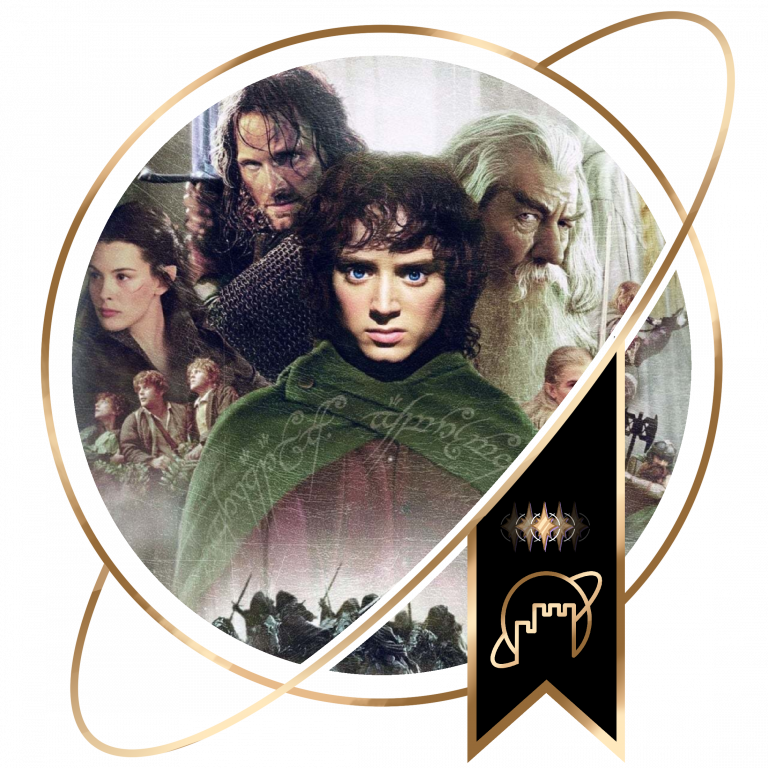
Peter: Welcome to this spoiler-free (though really, is this a story that can still be spoilt?) discussion Peter Jackson’s film adaptations of J.R.R. Tolkien’s The Lord of the Rings, which we’ve decided to add to the Escape Velocity Collection, a series of items that we believe represent the absolute peak of what the speculative genre has to offer.
There are some pieces of media which everyone knows, and which have been so influential that the Collection just isn’t complete without them. The Lord of the Rings-film series is one of them. Below, our curators discuss what Peter Jackson’s movies have meant to them and their experience in the fantasy genre.

Jop

Robin

Peter

Key
Words can hardly express how important those movies are to me – it’s frankly irrational and a little unhealthy.
I think however, that the Lord of the Rings movie trilogy is an absolute triumph of filmmaking. Almost everything about them is right. The production values are great. New Zealand is great. The acting is great. The music is so good that they changed the Oscars’ rules so Howard Shore could win one twice.
I would not lie if I said that I think of these movies on a literal daily basis. The main reason is that probably my favourite way to wind down is painting Middle-Earth Strategy Battle Game (MESBG) miniatures – and that hobby takes up a lot of my free time. I own over a thousand minis – as I am sitting here writing, my painting station with a bunch of them and a shelf full of rulebooks are sitting to my left. I have a chess set composed of MESBG minis on my right. There is an army of MESBG miniatures on display in my living room.
In fact, I first came into contact with the movies through the miniatures. When I was nine years old, a friend owned a set of Uruk-Hai which he had painted and showed to me. They looked absolutely amazing. I kept nagging until my parents finally let me watch the movies. For the next few years after that moment, my sister and I watched at least one Lord of the Rings movie every two weeks (though the first couple of times, I remember my parents sending us to sit in the hallway during most of the battle scenes). I still try to have at least one extended edition marathon every year. As a result, I know most of the lines by heart. I still get goosebumps at all the right times. You probably do not want to watch these movies with me.
Peter Jackson, to me, created the ultimate fantasy experience, and everything that will ever be made after it (and most of what came before) will be measured against his achievement.


I share Peter’s emotions; these movies changed my life in an unimaginable way. From the moment I first saw them – I was 10 or 11 years old? – they’ve instilled me with a sense of wonder, adventure and (in my darkest days) even hope. They were the inspiration for countless backyard adventures with my friends in which I played ‘Jopdalf the Wizard’, as well as the kickstart to my passion for writing (fantasy). I still watch them at least once a year, and they are my go-to comfort movies. Similar to Peter, there are Lord of the Rings memorabilia scattered throughout my house.
This movie trilogy is simply divine. In fact, I truly believe they aged better than most other movies from the last twenty years. When Peter Jackson filmed The Lord of the Rings, he didn’t have access to all the modern filmmaking techniques and technologies that are available today. However, he made up for it with creativity and cleverness that can’t be matched by all the CGI in the world. The same can be said for all the crew members that made the production of these movies possible.
There’s more praise to give, of course. The acting in these movies is sublime, a compliment that’s applicable to the whole cast, in my opinion. And indeed, Howard Shore’s beautiful music still hasn’t found its match.
The one real complaint I’ve heard people have with this trilogy, is that they are quite long. I guess that’s true. However, sometimes I have exciting dreams that show me completely new scenes. I suppose that means my subconscious wouldn’t have minded a few minutes extra for these movies.
I may not quite be able to match up to Peter- or Jop-levels of excitement, but the Lord of the Rings movies have been absolutely formative for me as well and I still love them dearly. The first time I watched them was with my sister and my two cousins, by my best guess I was around 9 or 10 years old. For weeks afterwards, whenever we played together we couldn’t stop running around and pretending to shoot arrows while surfing off of the tusks of giant Olifaunts like Legolas. After that, every year we would plan a weekend during our summer holidays where we would turn our entire living room into a screening area and watch all three movies in a row. Bless my parents for allowing this. These days I mostly keep my viewings down to once every few years, but every time I free up the time and sit down for it, it is always an absolute joy.


The first time I saw the LotR-trilogy was with a friend from elementary school. I think we were 11, maybe 12. He was a fan, I was a newbie. The movies didn’t struck me as an inspiring story, more as a lot fighting. It was fine, but not my cup of tea. Fast forward a couple of years and I found myself in a group of friends completely enamoured with the world of Tolkien. They insisted on a LotR-marathon and I went with it. It changed my life. Not really because of the movies, I have to admit, but because it brought me closer to friends who have never left my side since. I have come to appreciate the story and the characters, definitely, but for me LotR is inextricably linked with friendship. And I think that is what great stories do, they bring people together. We can laugh, cry, scoff, criticise and romanticise LotR, together. Like that time one of us ran from home. Or that time friends came and went while the diehards remained glued to the couch for twelve hours. Or that time we started a fantasy review platform. Or…
Conclusion
I don’t think there is much to add here, other than The Lord of the Rings singlehandedly put Fantasy as a genre back on the map and sparked a wave of enthousiasm that has not been matched since (not even by HBO’s Game of Thrones). These movies are the textbook definition of genre defining, and incredibly good. If you haven’t seen them yet, (i) How? (ii) cancel your plans for tonight and watch The Fellowship of the Ring, its on Netflix nowadays; (iii) Is it even possible to not have seen these movies? Did you actively run away from them? Are you ok? What is it like to live in a world without Ian McKellen’s Gandalf? (iv) HOW?
On that note, we would like to leave you for now – stick with us for more reviews and additions to the collection, and in the meantime: Happy Escaping!

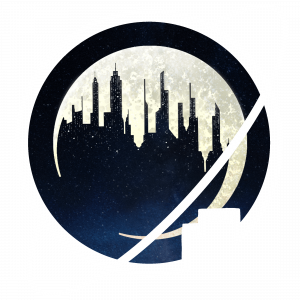
Review: The Unsleeping City – Dimension 20
In this Dungeons and Dragons webseries by Dimension 20, the city that never sleeps is home to more than just cockroaches and rats. In the Unsleeping City, magical creatures abound, hidden from view of average New Yorkers. The story follows a small group of people who can see the magical elements of the city, and the conflicts that arise because of them.

Recommendation: Light-hearted Fantasy (for lovers of Terry Pratchett)
Looking for some light-hearted fantasy? See what our curator Lotte recommends!

Review: The Witcher: Nightmare of the Wolf – Netflix
As strange variants of monsters start to terrorize the forest of Ard Carraigh, the witcher Vesemir is tasked to investigate their origins. Meanwhile, in political spheres the following question arises: is there still a need for monster hunters in the world?
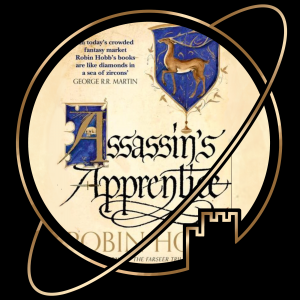
Review: Assassin’s Apprentice – Robin Hobb
Part one of the Farseer Trilogy. As the illegitimate son of the Crown Prince, young Fitz holds a difficult position in the royal court of the Kingdom of the Six Dutchies. He is not publicly acknowledged by his family and so he grows up as a stableboy, while in secret his grandfather King Shrewd has him trained to become an assassin. At the same time, he has to learn to handle the hereditary magic that is part of his bloodline. Threats to the Kingdom, both from outside of its borders and from within, will force Fitz to consider where his true loyalties lie.

Curator Question: Books, books, books
Our curators discuss what they like best: reading eBooks, paperbacks or hardcovers, or listening to audiobooks?
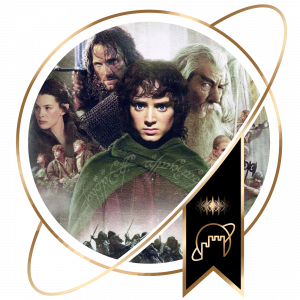
Collected: The Lord of the Rings Movie Trilogy by Peter Jackson
COLLECTION: Peter Jackson’s legendary the Lord of the Rings movie trilogy hardly needs introduction – it is the epic tale of a halfling from a peaceful land that gets entangled in the affairs of the Big Folk when it turns out a family heirloom is the key to defeating evil forever.






